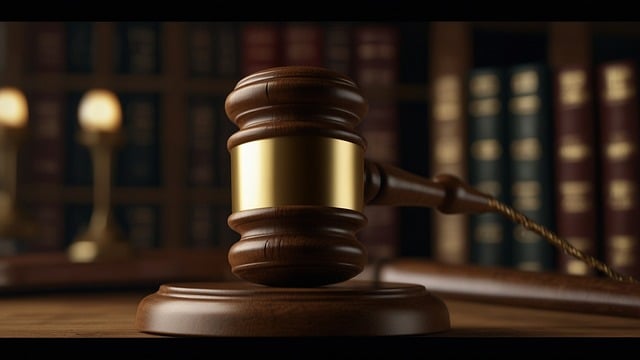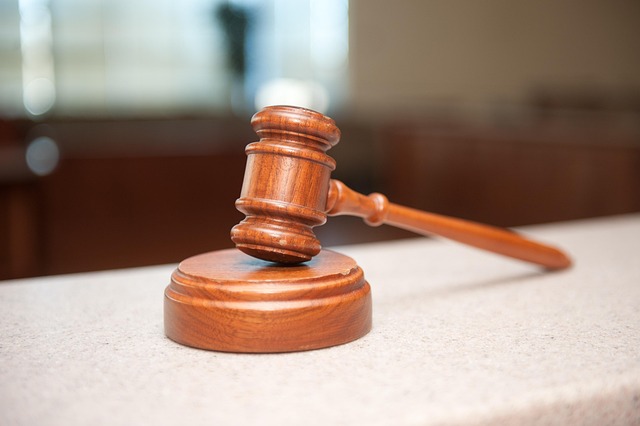The RF Securities Industry operates under strict federal and state regulations aimed at fraud prevention, transparency, and market integrity, governed by bodies like the SEC. Navigating this landscape requires a deep understanding of Understanding Criminal Procedure Law Basics, which guides investigations, prosecutions, and defenses from initial stages to appeals, ensuring fairness. Key regulators handle complex cases involving white-collar crimes, collaborating with legal professionals to adapt to evolving challenges. Effective compliance, including record-keeping and training, is vital for meeting regulatory standards and defending against charges, underscoring the importance of Understanding Criminal Procedure Law Basics in securing favorable outcomes.
The RF Securities industry operates within a framework of stringent regulations, ensuring fairness, transparency, and investor protection. This article offers a comprehensive guide to navigating this complex landscape. We’ll explore key aspects such as an Overview of RF Securities Industry Regulation, delve into the Understanding Criminal Procedure Law Basics that underpin these rules, and analyze the roles of crucial regulatory bodies. Additionally, we will dissect compliance and enforcement procedures, providing valuable insights for industry participants.
- Overview of RF Securities Industry Regulation
- Key Criminal Procedure Law Basics
- Regulatory Bodies and Their Roles
- Compliance and Enforcement Procedures
Overview of RF Securities Industry Regulation

The RF Securities Industry is heavily regulated to ensure fair practices and protect investors. Regulation involves a complex interplay of federal and state laws, with a primary focus on preventing fraud, ensuring transparency, and maintaining market integrity. Understanding Criminal Procedure Law Basics is crucial here, as it outlines the rights of individuals accused of misconduct and sets guidelines for investigations and prosecutions. This legal framework helps in avoiding indictment by establishing clear protocols for evidence collection and due process.
Regulatory bodies, such as the Securities and Exchange Commission (SEC), play a vital role in overseeing the industry. They investigate complaints, enforce regulations, and take action against entities or individuals found to have violated securities laws. A robust general criminal defense strategy can help navigate these legal complexities. By employing skilled attorneys who specialize in both securities law and criminal procedure, companies and individuals can mount winning challenging defense verdicts, thereby mitigating potential consequences and ensuring compliance with the ever-evolving regulatory landscape.
Key Criminal Procedure Law Basics

Understanding Criminal Procedure Law Basics is essential for anyone navigating the complex world of RF Securities Industry Regulation. At its core, this legal framework dictates how criminal cases unfold, from the initial investigation to trial and appeals. Key aspects include the right to due process, ensuring fairness and justice throughout. For professionals in the securities industry, grasping these fundamentals is crucial, especially when facing allegations of fraud or misconduct, where a solid understanding of rights and procedures can make all the difference in achieving extraordinary results.
The Criminal Procedure Law covers every stage of the investigative and enforcement process, from the filing of charges to sentencing. It emphasizes transparency, timely resolution, and protection against arbitrary detention. These principles are particularly relevant in white-collar defense cases, where complex financial transactions and intricate legal arguments require meticulous handling. By understanding these procedural rights, individuals and organizations can more effectively defend themselves, ensuring that their rights are respected while navigating the intricacies of regulatory compliance.
Regulatory Bodies and Their Roles

The regulation of the RF securities industry is a multifaceted endeavor, involving several key regulatory bodies that each play a crucial role in maintaining market integrity and protecting investors. These bodies are tasked with understanding complex criminal procedure law basics to ensure fair and transparent operations within the financial sector. The primary regulators often have broad mandates, encompassing market oversight, enforcement of regulations, and the administration of securities laws. They work to achieve extraordinary results by addressing issues such as insider trading, fraud, and manipulation, thereby upholding the stability and reputation of the industry.
In addition to their regulatory functions, these bodies also facilitate collaboration among general criminal defense attorneys, philanthropic and political communities, and financial institutions. This collaborative approach is essential for staying ahead of evolving legal landscapes and adapting regulations to address emerging challenges. By fostering a culture of compliance and accountability, these regulatory entities contribute to the overall health and growth of the RF securities industry while ensuring that market participants adhere to ethical standards and legal requirements.
Compliance and Enforcement Procedures

The RF Securities Industry is heavily regulated to ensure fairness, transparency, and investor protection. At the heart of this regulation lies a robust framework for compliance and enforcement procedures. Understanding Criminal Procedure Law basics is crucial here, as it provides a structured approach to handling violations within the industry. This includes meticulous record-keeping, internal audits, and regular training sessions to educate employees on regulatory requirements. By adhering to these protocols, firms can fortify their defenses against potential charges, aiming for complete dismissals of all charges where applicable.
Enforcement agencies play a pivotal role in investigating securities-related crimes. When violations are suspected, these agencies conduct thorough inquiries, reviewing documents and interviewing personnel. A well-prepared defense strategy is essential to navigate this process effectively. Skilled attorneys specializing in the field can present compelling arguments, challenging the evidence and ultimately working towards winning challenging defense verdicts for their clients.
Understanding the intricate web of Criminal Procedure Law is essential for navigating the RF Securities Industry. This article has provided an overview of key regulatory bodies, their roles in enforcement, and vital compliance procedures. By grasping these fundamentals, market participants can ensure adherence to standards, fostering a secure and transparent environment for all. Recognizing the importance of these regulations is crucial for the continued growth and integrity of the industry.






